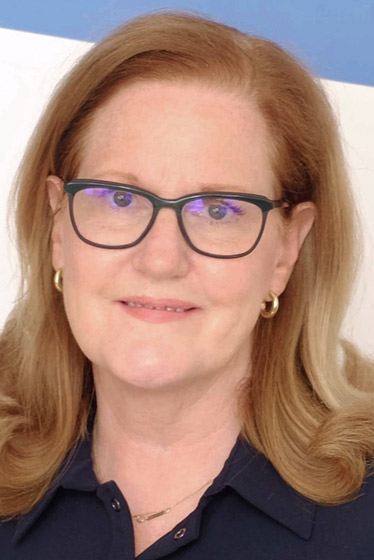

 We are experiencing a time of global challenges. How to mitigate global warming, fight a global pandemic, and prevent the spread of totalitarianism and war, are just some of the most urgent questions. Digital technologies offer us the tools to unite and face these challenges, instead, we have experienced the deterioration of the Internet into a Splinternet. Is Multistakeholderism, the currently dominant guiding principle of Internet Governance, still up to the task?
We are experiencing a time of global challenges. How to mitigate global warming, fight a global pandemic, and prevent the spread of totalitarianism and war, are just some of the most urgent questions. Digital technologies offer us the tools to unite and face these challenges, instead, we have experienced the deterioration of the Internet into a Splinternet. Is Multistakeholderism, the currently dominant guiding principle of Internet Governance, still up to the task?
 Domain Name System (DNS) Operators (Registries and Registrars) receive notices asking them to take action on a wide range of alleged technical and content-related abuses. However, there is a fundamental question of when it is appropriate to act at the DNS level and the evaluation of whether the alleged abuse meets a sufficient threshold for action at the DNS level. Additionally, given the volume of abuses occurring on the internet, existing resources, mechanisms, and protocols available in-house to Operators are in many cases insufficient to address abuses in a timely fashion.
Domain Name System (DNS) Operators (Registries and Registrars) receive notices asking them to take action on a wide range of alleged technical and content-related abuses. However, there is a fundamental question of when it is appropriate to act at the DNS level and the evaluation of whether the alleged abuse meets a sufficient threshold for action at the DNS level. Additionally, given the volume of abuses occurring on the internet, existing resources, mechanisms, and protocols available in-house to Operators are in many cases insufficient to address abuses in a timely fashion.
 The invasion of Ukraine by Russia on 24 February, and the events since, have shocked and horrified the world. The immediate focus must be on protecting the safety, security and human rights of the Ukrainian population. But we can already see how the war will also impact broader global events, discussions and behaviour, particularly relating to the digital environment.
The invasion of Ukraine by Russia on 24 February, and the events since, have shocked and horrified the world. The immediate focus must be on protecting the safety, security and human rights of the Ukrainian population. But we can already see how the war will also impact broader global events, discussions and behaviour, particularly relating to the digital environment.
 On Friday, Mykhailo Fedorov, Ukraine's digital transformation minister, asked Cloudflare and Amazon to stop serving Russian web resources and protecting Russian services. He said in a tweet that Ukraine was "calling on Amazon to stop providing cloud services in Russia." He also said that "Cloudflare should not protect Russian web resources while their tanks and missiles attack our kindergartens."
On Friday, Mykhailo Fedorov, Ukraine's digital transformation minister, asked Cloudflare and Amazon to stop serving Russian web resources and protecting Russian services. He said in a tweet that Ukraine was "calling on Amazon to stop providing cloud services in Russia." He also said that "Cloudflare should not protect Russian web resources while their tanks and missiles attack our kindergartens."
 The recent horrific actions undertaken by Vladimir V. Putin and complicit Russian actors against the sovereign nation of Ukraine and its people are widely regarded as war crimes on a profound scale not seen in Europe since World War II. The costs in lives and property are enormous. It has recently resulted in a condemning UN Resolution. At some point, there will be reckoning for Putin and those who aided and abetted his actions through our domestic and international legal systems.
The recent horrific actions undertaken by Vladimir V. Putin and complicit Russian actors against the sovereign nation of Ukraine and its people are widely regarded as war crimes on a profound scale not seen in Europe since World War II. The costs in lives and property are enormous. It has recently resulted in a condemning UN Resolution. At some point, there will be reckoning for Putin and those who aided and abetted his actions through our domestic and international legal systems.
 For several years, many within ICANN circles have raised concerns about the escalating nature of domain name system (DNS) abuse. While some strides were made toward a safer DNS, new data - this time from a comprehensive study of DNS abuse by the European Union - demonstrates that abuse remains a frustratingly obstinate problem that requires urgent attention. We've seen some registries and registrars testing innovative industry-led initiatives in an effort to address the issues.
For several years, many within ICANN circles have raised concerns about the escalating nature of domain name system (DNS) abuse. While some strides were made toward a safer DNS, new data - this time from a comprehensive study of DNS abuse by the European Union - demonstrates that abuse remains a frustratingly obstinate problem that requires urgent attention. We've seen some registries and registrars testing innovative industry-led initiatives in an effort to address the issues.
 In response to Russia's horrific invasion and war against the Ukrainian nation ordered by Dictator Putin that will live in infamy, an array of nations, organizations, and companies have responded to shun and shut off Russia in every possible manner. The actions include no-fly zones, removal from ICT network services, and essentially universal declarations of condemnation. For the first time ever, all Russian proposals to the International Telecommunication Union (ITU) quadrennial standards body plenary known as the WTSA have been "bracketed"...
In response to Russia's horrific invasion and war against the Ukrainian nation ordered by Dictator Putin that will live in infamy, an array of nations, organizations, and companies have responded to shun and shut off Russia in every possible manner. The actions include no-fly zones, removal from ICT network services, and essentially universal declarations of condemnation. For the first time ever, all Russian proposals to the International Telecommunication Union (ITU) quadrennial standards body plenary known as the WTSA have been "bracketed"...
 Ask ten people what privacy is, and you'll likely get twelve different answers. The reason for the disparity is that your feelings about privacy depend on context and your experience. Privacy is not a purely technical issue but a human one. Long before computers existed, people cared about and debated privacy. Future U.S. Supreme Court Justice Louis Brandeis defined it as "the right to be left alone" in 1890. Before the Web became a ubiquitous phenomenon, people primarily thought of privacy in terms of government intrusion.
Ask ten people what privacy is, and you'll likely get twelve different answers. The reason for the disparity is that your feelings about privacy depend on context and your experience. Privacy is not a purely technical issue but a human one. Long before computers existed, people cared about and debated privacy. Future U.S. Supreme Court Justice Louis Brandeis defined it as "the right to be left alone" in 1890. Before the Web became a ubiquitous phenomenon, people primarily thought of privacy in terms of government intrusion.
 We're all used to crazy advertising about telecom products that make industry folks shake their heads -- many of the ads about 5G come to mind. Most people don't realize that carriers in the industry routinely challenge the claims made by competitors to force them to modify or drop deceptive ads. Most of the largest corporations in the country belong to the National Advertising Division (NAD), which is part of the Better Business Bureau and arbitrates disputes about advertising between participants in the plan.
We're all used to crazy advertising about telecom products that make industry folks shake their heads -- many of the ads about 5G come to mind. Most people don't realize that carriers in the industry routinely challenge the claims made by competitors to force them to modify or drop deceptive ads. Most of the largest corporations in the country belong to the National Advertising Division (NAD), which is part of the Better Business Bureau and arbitrates disputes about advertising between participants in the plan.
 Ukraine's representative to ICANN's Governmental Advisory Committee (GAC) has sent a letter to the Internet Corporation for Assigned Names and Numbers (ICANN) to remove Russian-administered top level domains (.RU, .SU and .рф) from the DNS root zone. In a separate letter, Ukraine's representative also asked RIPE NCC to withdraw the right to use all IPv4 and IPv6 addresses by all Russian members of the regional IP registry for the European region.
Ukraine's representative to ICANN's Governmental Advisory Committee (GAC) has sent a letter to the Internet Corporation for Assigned Names and Numbers (ICANN) to remove Russian-administered top level domains (.RU, .SU and .рф) from the DNS root zone. In a separate letter, Ukraine's representative also asked RIPE NCC to withdraw the right to use all IPv4 and IPv6 addresses by all Russian members of the regional IP registry for the European region.